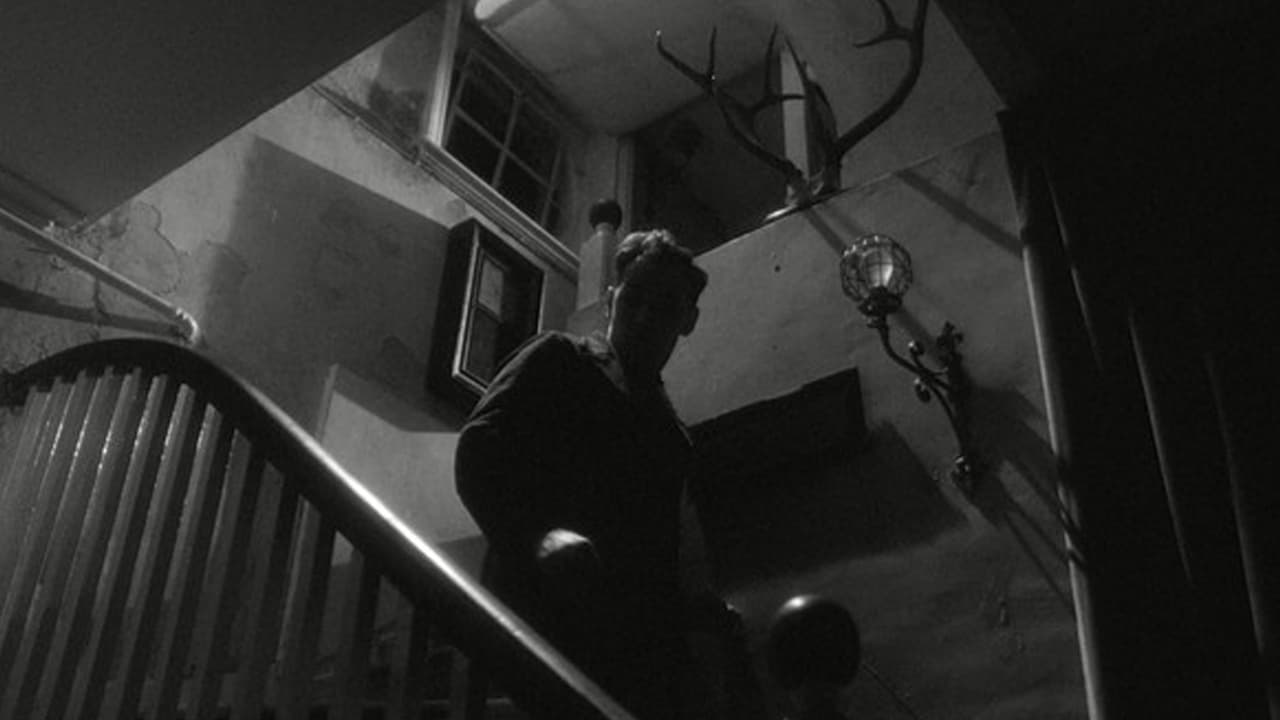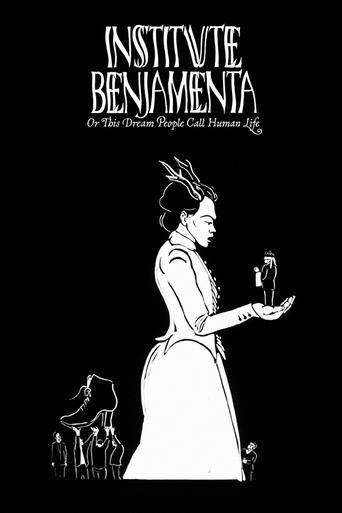Smartorhypo
Highly Overrated But Still Good
FirstWitch
A movie that not only functions as a solid scarefest but a razor-sharp satire.
Allison Davies
The film never slows down or bores, plunging from one harrowing sequence to the next.
Stephanie
There is, somehow, an interesting story here, as well as some good acting. There are also some good scenes
Graham Greene
A difficult and dreamlike film that mixes elements of the period squalor and steam punk expressionism of an early David Lynch, with the archaic self-awareness of Guy Maddin at his most starkly referential. Institute Benjamenta, or This Dream People Call Human Life (1995) will surely repel just as many viewers as it excites; with its combination of slow, abstract, carefully composed black and white imagery and elliptical narrative structures filled with codes and ciphers managing to be both pretentious and fascinating in equal measures. At its best, the atmosphere is continually beguiling and often like nothing else we've ever experienced; with every single frame of this bizarre odyssey into the notions of fractured, nocturnal ambiance and closeted sensuality being tightly composed and beautiful to look at. However, at its worst, it is infuriatingly beyond comprehension; with the mood and the tone leading the film, almost like poetry, beyond the outdated notions of structure or momentum, and instead leaving us with a film that is overwhelming in its unique vision and design, but simply devoid of any sense of feeling or philosophy for an audience to fully grasp on to.This isn't a flaw in itself, as cinema is ultimately beyond the trite notions of character and plot, but even then, a film should, in my mind at least, have the potential to make us think and feel. As with all great art there should be some idea attached to it; something that stands out and resonates either emotionally or intellectually (or both) that makes the process of viewing more rewarding on an entirely personal level. You have to really search for it here, and clearly, judging from the past reviews, my fellow commentators have also struggled to unearth any overall sense of meaning from the film's emptily cryptic images and emphasis on dreamlike atmospherics. If the point of the film was simply to conjure this world within the mind of the viewer, then the film is a great success; with the meandering, drifting as if sleepwalking tone of the film being both striking and evocative from the first frame until the last. That said, there's only so far we can go with lovingly choreographed sequences of dance and movement combined with the amazing use of editing and shot construction, which finds stories in even the most minor or mundane of actions, though sadly, nothing that would point to an overall theme or interpretation.I suppose it is indicative of the directors' joint backgrounds in animation, or their fondness and appreciation for the films of Jan Švankmajer or Juraj Herz, with the emphasis placed on the look and feel of the film, rather than any kind of connection to the material. Or maybe there is and we just need to look deeper; to scratch beneath the surface and persevere with the free-flowing narrative, to see the clues that lurk beneath. Regardless of how you approach it - and with these particular "flaws" in mind - the film is still a fascinating work; with that atmosphere and somewhat Eastern European look and feel of the film being unrivalled, and again, unlike anything else we've ever experienced. Added to this, the central performances from Mark Rylance and Alice Krige are both exceptionally detailed, even within such an evasive and enigmatic construct. At any rate, Institute Benjamenta is certainly a difficult film to recommend, but an even more difficult one to dismiss; with the hints of the brothers' earlier, animated work - such as Street of Crocodiles (1986) and Rehearsals for Extinct Anatomies (1988) drawing obvious parallels - and combining it with an approach that is memorable and purely cinematic.
swearm_x
...especially Alice Krige! The directing, however, I would have liked more without its over enthusiastic surreal demeanour. The story and essence of the picture as well as its atmosphere and its meaning in reference to the real world fall much to short. What a waste of attitude and art as the ideas of presenting and most acting were captivating. But in lack of a coherent story the movie became what it is...art, with a meaning somewhere to find (Dalí meets a narcissistic form of Kafka) - instead of a beautiful and moving picture with deep meaning. All just for art's sake? e.g. why is she speaking Dutch and other languages several times? Why overdoing it? Why this shabby and in a way arrogant symbolism?Didn't read the book by Robert Walser (Jakob von Gunten) - but now I'm interested and hope it's better.
AdFin
Not for all tastes, Institute Benjamenta is like David Lynch's The Elephant Man via the works of Bergman and silent expressionism. Every single frame in the bizarre odyssey is tightly composed and beautifully printed in black and white. The use of shifts in focus and depth, and the wild juxtapositions of the most mundane actions, allowing them to take on any number of connotations only heightens the floating dream like atmosphere, as we are dumped into this world with no idea of what is going on, or what is going to happen. But this film is terribly slow (this is were the Bergman element comes into play), and it's a test of the viewer's concentration to see the film through. But unlike Bergman, Institute Benjamenta does not pay off at the end, nor does it leave the viewer puzzled, conflicted and desperate to experience the film again (ala Persona).Instead Institute Benjamenta just ends, and personally I have no desire to watch the film again, I felt I got everything I could and wanted to gain from the experience. The acting was good, suitably distant and with the right level of cold detachment, but there was a constant feeling the actors were plating second fiddle to the sumptuous visuals put on show by the famed animators the brothers Quay. It's sad that they have yet to make another live action film, as the wealth of great ideas and knowledge of film-making displayed in Institute Benjamenta is one-hundred times better than most of the recent films I've seen, if the Brothers had put a little more time into the depth of the narrative, they could have backed up those haunting images with some much needed substance.This is not a film for everyone, as I have already stated. The nonsensical narrative and bursts of surrealism will undoubtedly put off some viewers, but this is a film that should have a wider audience. In a cinematic world of conventions and formulas the brothers Quay made a film that, although by no means great, showed originality and definite promise, that makes Institute Benjamenta a film worthy of cult classic status.
Dave-369
The first time I saw this movie, I fell asleep--but I don't blame the movie at all. I was tired. Before I fell asleep, I found it frustrating and oblique. But when I woke up, suddenly the dream logic of the movie seemed to make sense. Then I saw it again.Often compared to Eraserhead, I think this movie has much, much more to offer than Lynch's first feature. Institute Benjamenta doesn't have any kind of decoder...in fact, it refuses any. Filmed in a hazy, drowsy black-and-white, with scenes of flat, if surreal, simplicity, interspersed with dreamy, nonsensical interludes, it must be accepted before it can be enjoyed.

